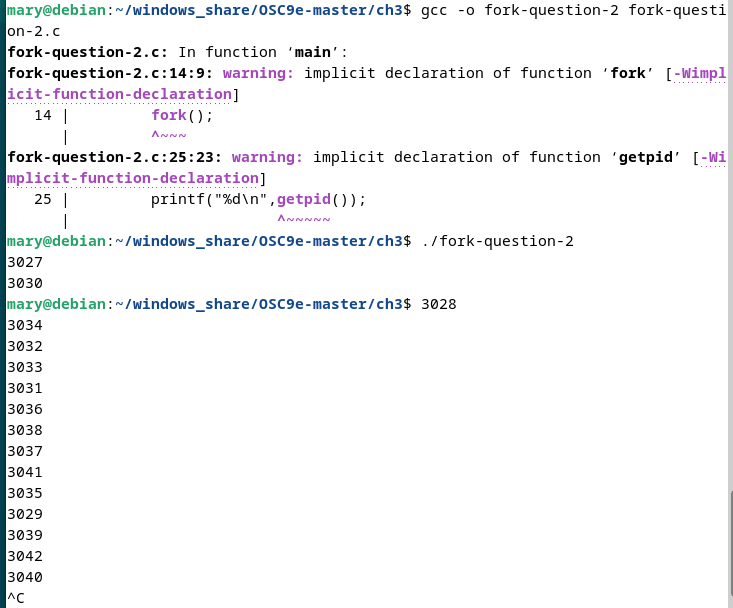來數一下行程數量吧~
#include <stdio.h>
#include <unistd.h>
int main()
{
int i = 0;
for ( i = 0; i < 4; i++)
fork();
return 0;
}
圖3.31 產生了多少行程?
fork() 函數會創建一個新的行程。每次調用 fork(),當前行程會被複製一個子行程。
初始時有一個行程(父行程)。
在第一次迴圈時,調用 fork() 會產生 2 個行程(1 個父行程 + 1 個子行程)。
在第二次迴圈時,每個現有的行程(2 個)都會再次調用 fork(),這將產生 4 個行程(2 個現有行程各自再創建 1 個子行程)。
在第三次迴圈時,每個現有的行程(4 個)再次調用 fork(),這將產生 8 個行程。
在第四次迴圈時,每個現有的行程(8 個)再次調用 fork(),這將產生 16 個行程。
改一下原有的 fork-question-2.c 程式碼,也可以得出有 16 個行程這個答案。
/**
* Solution to exercise 3.31
*
* The answer is easily determined by counting
* the number of unique processes which are output
* by the call to getpid() - which is 16 unique processes.
*/
#include <stdio.h>
int main()
{
printf("%d\n",getpid());
fork();
printf("%d\n",getpid());
fork();
printf("%d\n",getpid());
fork();
printf("%d\n",getpid());
fork();
printf("%d\n",getpid());
return 0;
}
Terminal
編譯並執行
gcc -o fork-question-2 fork-question-2.c
./fork-question-2
結果(為了避免算到眼花,我只保留最後一個 printf ):
參考:greggagne/OSC9e/ch3/fork-question-2.c
